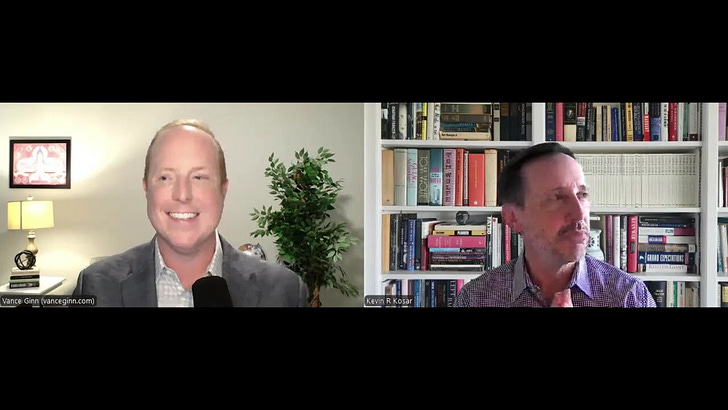My short chat with Vance Ginn about OMB and the budget deficit.
I enjoyed it, but I am not feeling any better.
Regular readers know that I am worried about the federal budget. The nation is $35 trillion in debt and neither party in Congress has a shown real interest in staunching the flood of red ink or fixing the 50-year old congressional budget process. America spends more on interest on the national debt than on national defense and Medicare.
Last month, former Rep. Tom Reed (R-NY) reminded us that the current budget process does not force Congress to consider revenue and spending issues in tandem when it is budgeting. So, unsurprisingly, elected officials are happy to enact tax cuts while increasing spending.
This fiscal insanity cannot continue forever. Social Security benefits will be cut if Congress does not do something. And who knows, maybe financiers and foreign nations will decide they just do not want to keep purchasing so many U.S. government bonds, and a debt crisis will erupt.
My chat with Dr. Vance Ginn, who worked at the Office of Management and Budget and hosts the Let People Prosper show and podcast, reminded me of two truths:
The president’s formal powers over aggregate revenue-raising and spending are very modest. Congress can ignore his proposed budget and the chief executive’s powers are marginal—he can reprogram and transfer funds, for example.
Yet, As budget guru Dr. Allen Schick explained on the Understanding Congress podcast long ago, the president plays a key role. He can focus a nation’s attention on a budgetary problem, and thereby create the space for legislators to take unpopular votes that address the problem.
To date, neither party’s candidate for president shows any interest in leading on budget issues. In fact, each of them has proposed policy plans that would increase the deficit and debt, which is dispiriting.
I hope you enjoy the short chat I had with Vance. Please feel free to comment below.




While talk about “deficits” and the “national debt” are often based on nonsense & amount to mere posturing, but at some point we will reach too much. That won't be explored in this campaign; campaigns don't decide particular issues often or well. The point to remember is that Trump's plan increases the national debt about twice the amount that Harris's plan would. Neither may be good, but one is certainly worse.
This statement is prescient and nonsense at the same time: "the current budget process does not force Congress to consider revenue and spending issues in tandem when it is budgeting." Unless revenue and spending issues are considered in tandem, there's no budgeting occurring.